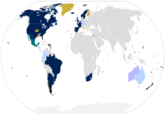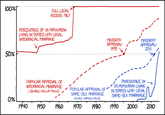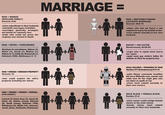Same-Sex Marriage
Part of a series on LGBTQ+. [View Related Entries]
[View Related Sub-entries]
This submission is currently being researched & evaluated!
You can help confirm this entry by contributing facts, media, and other evidence of notability and mutation.
Overview
Same-Sex Marriage refers to the ritually recognized union or legal contract between two people of the same sex. The legal recognition of same-sex marriages has been a long-running contested issue worldwide, with the first laws allowing its practice appearing in the mid-1990s.
Background
Why same-sex pairings have been recorded throughout human history, marriages and other ritually or legally recognized unions have been rare. The legal recognition of same-sex marriages has been a long-running contested issue worldwide, with the first laws allowing its practice appearing in the mid 1990s. In 2001, The Netherlands became the first country to recognize same-sex marriage nationwide.

Notable Developments
International Rulings
From 2003 to 2014, many countries around the world ruled to legally recognize same-sex unions, including Belgium (2003), Spain (2005), Canada (2005), South Africa (2006), Norway (2009), Sweden (2009), Portugal (2010), Iceland (2010), Argentina (2010), Denmark (2012), Brazil (2013), France (2013), Uruguay (2013), New Zealand (2013), the United Kingdom (2014), and Ireland (2015).
The State of Massachusetts Ruling
On November 18th, 2003, the Supreme Judicial Court ruled in Goodridge v. Department of Public Health that same-sex couples had the right to marry in the state of Massachusetts. On May 17th, 2004, Massachusetts became the first state to legalize same-sex marriage.
The U.S. Supreme Court Ruling
In June 2015, the LGBT community's fight for marriage equality reached a major milestone when the U.S. Supreme Court ruled in Obergefell v. Hodges that the Constitution requires all states to recognize same-sex marriage as a valid union. Justice Anthony Kennedy wrote the majority opinion, and was joined by Ruth Bader Ginsburg, Stephen Breyer, Sonia Sotomayor and Elena Kagan.
"No union is more profound than marriage, for it embodies the highest ideals of love, fidelity, devotion, sacrifice, and family. In forming a marital union, two people become something greater than once they were. As some of the petitioners in these cases demonstrate, marriage embodies a love that may endure even past death. It would misunderstand these men and women to say they disrespect the idea of marriage. Their plea is that they do respect it, respect it so deeply that they seek to find its fulfillment for themselves. Their hope is not to be condemned to live in loneliness, excluded from one of civilization's oldest institutions. They ask for equal dignity in the eyes of the law. The Constitution grants them that right."
Dissenting Opinions
The dissenting Justices John Roberts, Antonin Scalia, Clarence Thomas and Samuel Alito authored their own opinions. Roberts argued that the ruling demonstrated the Court had overreached its role as constitutional enforcer and that it would serve a setback for supporters of same-sex marriage who had been successfully persuading the public through the "democratic process."
"Understand well what this dissent is about: It is not about whether, in my judgment, the institution of marriage should be changed to include same-sex couples. It is instead about whether, in our democratic republic, that decision should rest with the people acting through their elected representatives, or with five lawyers who happen to hold commissions authorizing them to resolve legal disputes according to law."
Justice Scalia wrote a separate dissent in which he criticized other Justices for being "activists" and accused the Court of being a "threat to American democracy." Justice Thomas argued the majority were misinterpreting the 14th Amendment's Due Process Clause. In Justice Alito's dissent, he asserts that the Due Process Clause did not protect gay marriage and that the "majority facilitates the marginalization of the many Americans who have traditional ideas."
That day, the official White House Twitter feed changed its profile picture to a rainbow-colored illustration of the White House building (shown below).
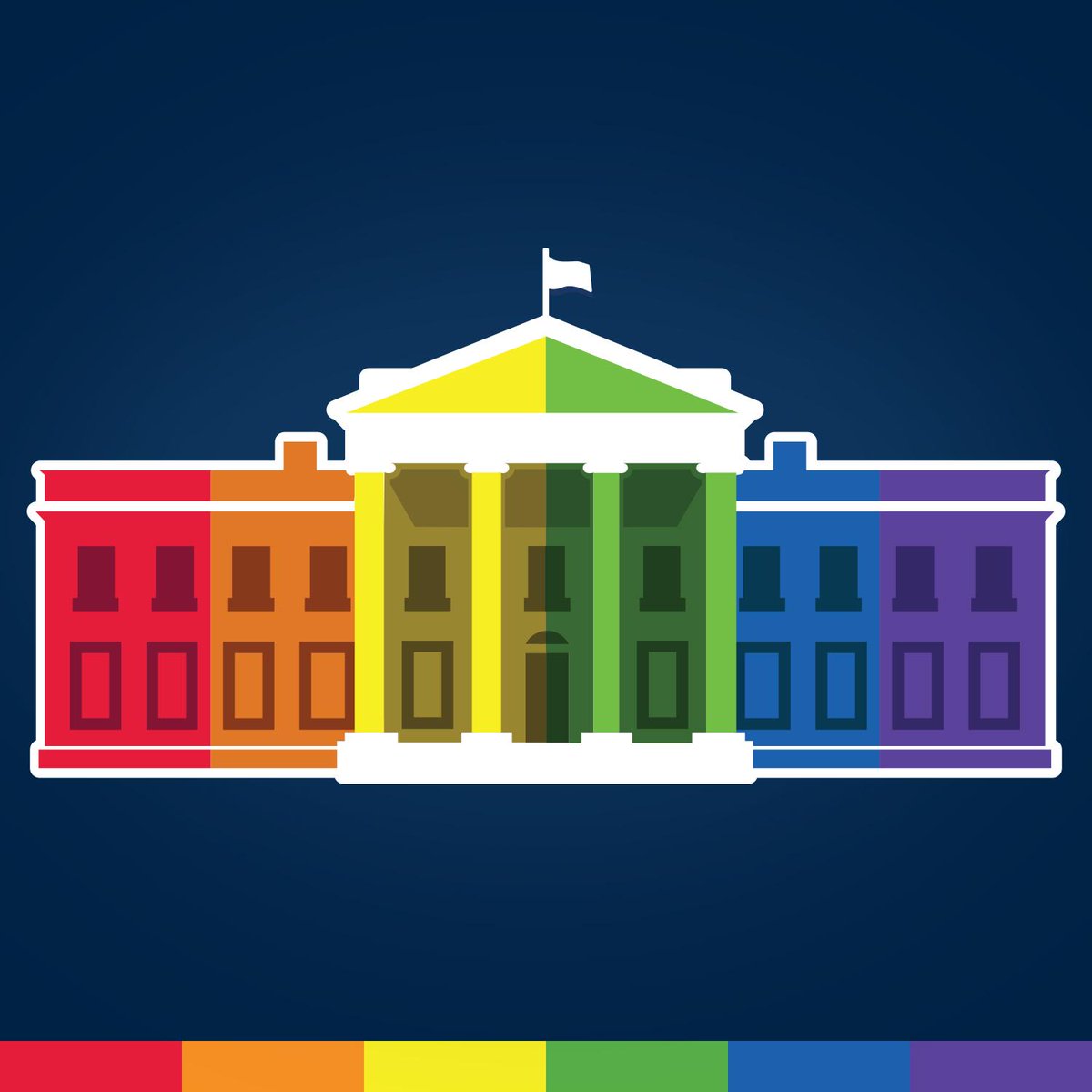
Campaigns
Red Equal Sign
Red Equal Sign is a banner image of an equality sign based on the official logo of The Human Rights Campaign (HRC), the largest LGBT equality-rights advocacy and lobbying group in the United States. In March 2013, more than 10 million Facebook and Twitter users replaced their profile avatars with the logo in support of same-sex marriage.
Human Rights Campaign's new profile photo quickly spread across the social networking site, reaching more than 9 million people and 77,000 shares directly from the group's Facebook page. In the following hours, several celebrities and public figures picked up on the trend by switching their profile photos on Facebook and Twitter, from actor George Takei and singer Lance Bass to Maryland governor Martin O'Malley and at least 13 United States Congress members.

Facebook Analysis
On March 29th, Facebook data scientist Eytan Bakshy[9] reported 2.7 million users on the site changed their profiles on Tuesday, March 26th, a 120% increase from the Tuesday prior. Many of these updates occurred after 1 PM EST, when the Human Rights Campaign made their first status update about the profile photos. Bakshy also found users close to 30 years old had the greatest increase in photo changes, with 3.5% of all 30-year-old Facebook users switching out their profile photo for a Red Equal Sign variant. Additionally, in the United States, counties hosting college towns saw larger amounts of support than counties hosting large cities including Los Angeles, Chicago and New York City (shown below).

Search Interest
Recent Videos 2 total
Recent Images 13 total
Share Pin


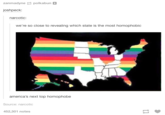
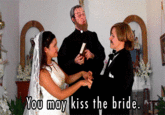
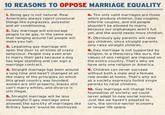
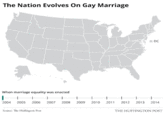
![An Irish Taxi Man's Hilarious Interview About Same-Sex Marriage [SUBTITLES] An Irish Taxi Man's Hilarious Interview About Same-Sex Marriage [SUBTITLES]](https://i.ytimg.com/vi/bEaoNV2T5rc/hqdefault.jpg)


